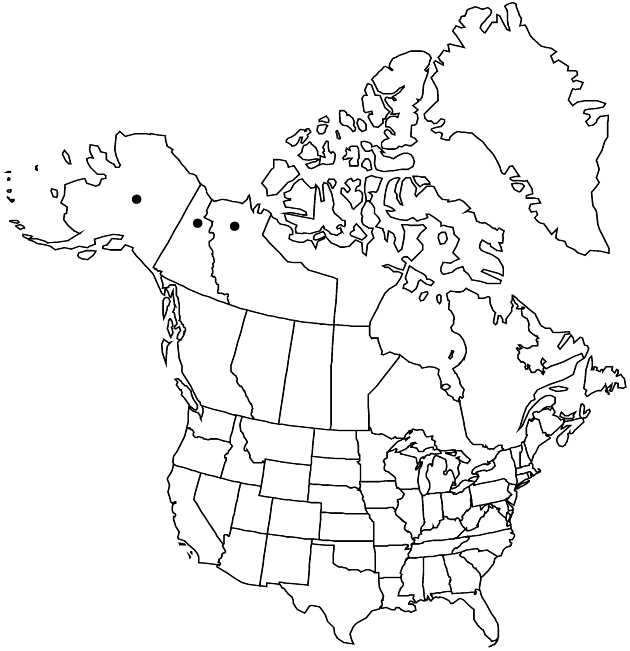familyAsteraceae
genusAntennaria
speciesAntennaria friesiana
subspeciesAntennaria friesiana subsp. alaskana
Difference between revisions of "Antennaria friesiana subsp. alaskana"
Ark. Bot., n. s. 7: 134. 1968.
Common names: Alaskan pussytoes
Basionym: Antennaria alaskana Malte Rhodora 36: 107. 1934
Synonyms: Antennaria friesiana var. beringensis Hultén
FNA>Volume Importer |
FNA>Volume Importer |
||
| Line 8: | Line 8: | ||
}} | }} | ||
|common_names=Alaskan pussytoes | |common_names=Alaskan pussytoes | ||
| − | |basionyms={{Treatment/ID/ | + | |basionyms={{Treatment/ID/Basionym |
|name=Antennaria alaskana | |name=Antennaria alaskana | ||
|authority=Malte | |authority=Malte | ||
| + | |publication_title=Rhodora | ||
| + | |publication_place=36: 107. 1934 | ||
}} | }} | ||
|synonyms={{Treatment/ID/Synonym | |synonyms={{Treatment/ID/Synonym | ||
| Line 54: | Line 56: | ||
|publication year=1968 | |publication year=1968 | ||
|special status= | |special status= | ||
| − | |source xml=https://jpend@bitbucket.org/aafc-mbb/fna-data-curation.git/src/ | + | |source xml=https://jpend@bitbucket.org/aafc-mbb/fna-data-curation.git/src/f6b125a955440c0872999024f038d74684f65921/coarse_grained_fna_xml/V19-20-21/V19_675.xml |
|tribe=Asteraceae tribe Gnaphalieae | |tribe=Asteraceae tribe Gnaphalieae | ||
|genus=Antennaria | |genus=Antennaria | ||
Revision as of 18:38, 24 September 2019
Dioecious (staminates and pistillates in equal frequencies in populations). Plants 7.5–14 cm. Stolons 0.5–1 cm. Cauline leaves 4–20 mm. Heads 2–6. Involucres: staminate 4–6.5 mm; pistillate 5.5–7 mm. Corollas: staminate 2.5–3 mm; pistillate 3–4.5 mm. Cypselae 1.2–1.8 mm; pappi: staminate 3–4 mm; pistillate 3.5–5 mm. 2n = 28, 56.
Phenology: Flowering summer.
Habitat: Arctic and alpine tundra, on or near dry rocky outcrops or sand ridges
Elevation: 500–1500 m
Distribution

N.W.T.. Yukon, Alaska.
Discussion
Subspecies alaskana is dioecious (sexual) and known from Alaska and cordilleran areas of northern Yukon and adjacent Northwest Territories (R. J. Bayer 1991, 1993). It is a probable progenitor of the Antennaria alpina complex.
Selected References
None.
Lower Taxa
None.